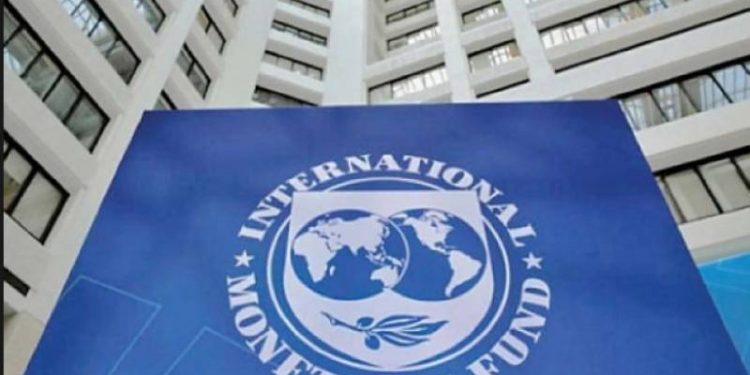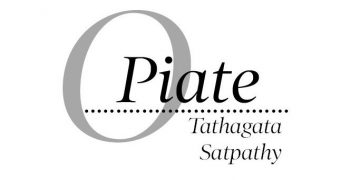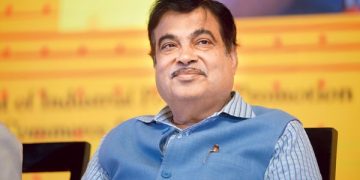Washington: The global growth forecasts for 2021 paint a less dire picture than the previous estimates of October, the head of the IMF said Thursday, asserting that this year promises to be a ‘consequential year’ as the world faces an unprecedented race between coronavirus, vaccines and a risk of diverging recoveries.
Cautioning that a “difficult period” lies ahead, International Monetary Fund (IMF) Managing Director Kristalina Georgieva said there are also “incredible opportunities” for structural transformation that needs to be pursued.
“It (2021) promises to be a consequential year. We face an unprecedented race between the virus and the vaccines, and a risk of diverging recoveries. We are in a process of updating our 2020 growth estimates and growth forecasts for 2021. They paint a less dire picture than our October forecasts, especially with data from the 3rd quarter surprising on the upside,” she said during a global media roundtable.
“We are still faced with tremendous uncertainties about the exit from the health crisis and we do have a difficult period ahead. Inequalities within and across countries are on the rise. We also have incredible opportunities for structural transformation that we need to absolutely pursue,” she said.
Georgieva said that the IMF would release its next world economic outlook update January 26. Acknowledging that 2020 is the worst year since the Great Depression, she said 2021 is expected to be less bad for three factors.
“One, the decisive and sustained monetary policy and fiscal measures in advanced economies they raised to Mario Draghi’s ‘whatever it takes’ level. Two, because we have seen countries adjusting these measures based on rapidly changing circumstances, for example in Japan and the US there is now new fiscal stimulus that comes on the back of the pandemic moving from bad to worse,” she said.
“Three, we have been handling the pandemic better over time. Adjusting to the digital economy, like you and me meeting in this format. Adjusting to micro measures – masks, social distancing that allows us to function with pandemic still with us. And of course, most importantly with vaccines in place and mass vaccinations starting. So that is my second message, there are reasons why, while it is bad, it is less bad,” the IMF chief said.
Georgieva said the IMF had three key priorities for the year.
“One: pursuing a durable exit from the health crisis,” she said.
Vaccination of the global population will be an uneven process across countries, across regions—meaning that some will recover faster than others, she said, adding that to speed the recovery would require international cooperation – particularly to ensure that vaccines cover low- and middle-income countries.
“We have yet to bring full funding for COVAX. We must do that. And we need to look at redistributing of vaccine capacity for countries that have booked for their population multiple times than the size of their population to countries that are in need of support for vaccination,” she said.
“The number that I always flag, and I want to repeat it is 9 trillion dollars. This is what we can gain between now and 2025 if we accelerate vaccination across the world,” the IMF head said.
Of this, 60 per cent would go to low-income countries and emerging markets and 40 per cent would go to advanced economies, she said.
In other words, it is great value for money for everybody to do.
“We estimate a USD 9 trillion dollar global output gain by 2025 from faster and more widespread availability of vaccines than currently anticipated,” she said.
Georgieva said a second policy priority was to pursue a sustainable and inclusive recovery.
“We will continue to make the case for sustained policy support until the recovery is firmly underway, and a gradual move to more targeted assistance for the most vulnerable,” she said.
“We will also work with our members on the concept of resilient economies, accelerating the transition to the new digital and climate economy. How can we do that? We have been advocating coordinated fiscal stimulus aimed largely at green and digital investment, and helping countries reduce high debt burdens and cope with volatile capital flows. Everywhere in poor and rich countries, we must help workers as they transition from shrinking to expanding sectors,” she said.
Finally, the IMF has to zero in big time in 2021 to arrest and reverse the dangerous divergence between rich and poor countries, Georgieva said.
Many emerging markets and low-income nations continue to hurt badly and their capacity to act is so much smaller than in advanced economies, she said, adding that advanced economies deployed the equivalent of 20 per cent of the GDP and low-income countries two per cent of GDP.
“Of course, their GDP is much smaller than the one of the advanced economies. Without coordinated international support we will see that divergence becoming a problem for the countries themselves but also for the security and stability of the world in the future,” she said.
Regarding that, two very important actions are needed, she said.
One is on the debt front, she said.
“We have the Common Framework in place, we have to make sure that we press private and public lenders to engage in debt restructuring when it is necessary,” she said.
“And two to provide more grants and concessional finance especially for digital infrastructure and climate resilience. That is going to be good for growth, good for jobs and it would also be good for security and stability for the world as a whole,” Georgieva said.
“Internally at the Fund, I told staff that I see this as a soccer game with two halves. 2020 the first half we did well, the world came out relatively speaking in a better shape than it could have been. But 2021 is going to be the second half and we know that in a soccer game what counts is the result in the end,” she said.
PTI






































